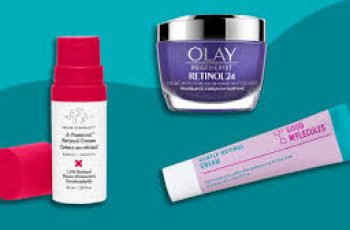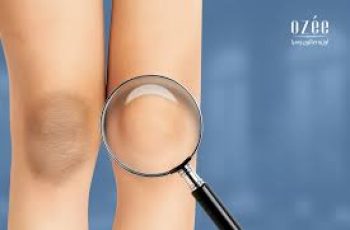
The Science of Carnosine in Skin Care Products
Carnosine is a naturally occurring peptide that’s gaining popularity in skincare due to its antioxidant and pigment-correcting properties. This peptide, made of two amino acids (β-alanine and histidine), is found in high concentrations in animal tissues. Although it’s praised for its potential anti-aging and skin-brightening effects, it’s important to understand how it works and how it compares to other skincare peptides. In this guide, we’ll explore what carnosine is, its benefits, and how it compares to other peptides. We’ll also identify which Baumann Skin Types could benefit from using carnosine products.
To find all the best products for your skin type, you can take the quiz for free by clicking the button below! Also, you can interact with out chat-bot, find products and ask questions for a 20% discount coupon at checkout!
What is Carnosine?
Carnosine (β-alanyl-L-histidine) is a dipeptide naturally found in animal tissues, particularly in muscles and the brain. It’s created in the body using an enzyme called carnosine synthase, which combines the amino acids β-alanine and histidine. Unlike many peptides that break down quickly, carnosine resists this degradation and stays longer in the body, making it valuable for skincare and health products.
Where does Carnosine come from?
Animal Sources – Carnosine is mainly found in animal tissues like chicken, pork, and beef, especially in muscles and the brain. It’s also present in smaller amounts in fish. Anserine, a related peptide, is more common in poultry and has similar properties.
Produced in Humans – In humans, this dipeptide is made in muscles, the brain, and other tissues by an enzyme called carnosine synthase, which combines β-alanine and L-histidine.
Lab-Made Carnosine – While carnosine is usually extracted from animal tissues, it can also be synthesized in the lab. One recent study showed that scientists could produce the dipeptide efficiently using whole-cell biocatalysts. (4)
Carnosine Benefits
Antioxidant Properties – This dipeptide is a strong antioxidant that fights free radicals, which can cause aging and damage to the skin. It can also bind to metal ions, making it even more effective at protecting against oxidative stress.
Pigment-Correcting Properties – Recent research shows that carnosine, along with anserine, can reduce melanin production by blocking tyrosinase, the enzyme responsible for melanin formation. This helps reduce hyperpigmentation and evens out skin tone.
Anti-Glycation Effects – Glycation happens when sugars attach to proteins, creating advanced glycation end-products (AGEs) that speed up aging. This dipeptide prevents this process, protecting collagen and elastin from damage.
Anti-Inflammatory Properties – By reducing oxidative stress, this ingredient also helps reduce redness and irritation, making it beneficial for sensitive skin types.
Here are some of the best skincare products with carnosine:
Carnosine Side Effects
Carnosine is generally safe for both topical and oral use. However, some people might experience mild irritation or skin allergy when using skincare products with this ingredient. It’s a good idea to do a patch test before applying it to your entire face. This ingredient is not comedogenic, meaning it is safe for acne prone skin. Additionally, organizations such as the Environmental Working Group (EWG) grade this dipeptide as safe to use in skin care.
Is carnosine vegan?
Carnosine is not vegan because it’s sourced from animal tissues. Currently, there are no vegetarian or vegan sources of this ingredient. Vegans can look for synthetic peptides that have similar antioxidant and anti-glycation effects.
How do carnosine supplements work?
When taken orally, carnosine supplements are absorbed in the small intestine and then spread throughout the body. This increases present levels in muscles and the brain, providing antioxidant and anti-glycation benefits.
In the Human Body
All vertebrates, including humans, naturally produce carnosine. It’s found in the highest concentrations in muscles and the brain. However, levels of this dipeptide decrease as we age, which might contribute to increased oxidative stress and aging.
Carnosine vs other Peptides
Defensins – Defensins are peptides that protect the skin from infections. While carnosine focuses on fighting oxidative stress and glycation, defensins primarily target bacteria and other microbes.
Signal Peptides – Signal peptides play a key role in cellular repair and regeneration. Unlike carnosine, which mainly acts as an antioxidant, signal peptides help stimulate collagen production and wound healing.
Matrikines – Matrikines are small protein fragments that stimulate collagen and elastin production. While carnosine also has anti-aging effects, it works differently by preventing oxidative stress and glycation.
TriHex Peptides – TriHex peptides help with collagen production and skin repair. They work well with antioxidants like carnosine but focus specifically on repairing the skin’s support structure.
Carnosine for anti-aging
Carnosine helps with anti-aging by fighting oxidative stress and glycation. By neutralizing free radicals and preventing AGEs from forming, this dipeptide helps protect collagen and elastin, keeping the skin firm and elastic. It is important to note that while peptides are very promising and interesting anti-aging ingredients, I recommend using them alongside other ingredients such as retinoids, exfoliators, SPF products, etc.
Carnosine for hyperpigmentation
This dipeptide can reduce hyperpigmentation by interfering with melanogenesis. By preventing melanin from forming, this ingredient helps fade dark spots and even out the skin tone. The exact mechanism of how carnosine accomplishes this is still being researched.
Which Baumann Skin Types can use Carnosine?
Several Baumann Skin Types can benefit from using carnosine, namely, pigmented and wrinkled skin types such as:
Oily Resistant Pigmented Wrinkled (ORPW): this ingredient helps reduce both wrinkles and dark spots.
Dry Sensitive Pigmented Wrinkled (DSPW): Its anti-inflammatory and antioxidant properties soothe sensitive skin while reducing pigmentation and wrinkles.
To find out your specific Baumann Skin Type and see if this fascinating dipeptide is right for you, take the Skin Type Quiz by clicking the button below!
Conclusion
Carnosine is a promising peptide with antioxidant and pigment-correcting properties. While it’s not the most powerful anti-aging ingredient on its own, it works well with other peptides and antioxidants to provide comprehensive skincare benefits. As more research uncovers the potential of peptides, this ingredient will likely remain an important part of the skincare conversation.


